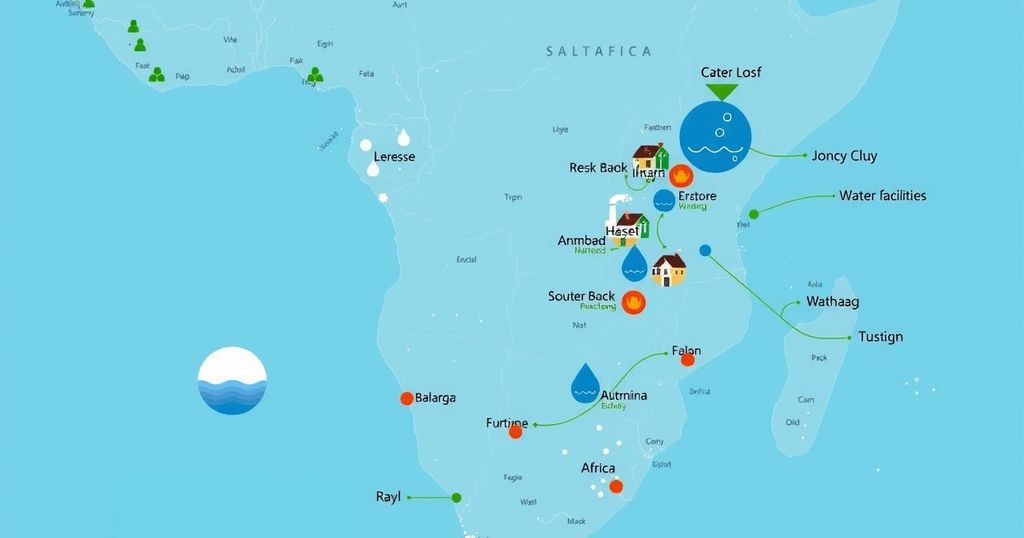Cholera Crisis in Eastern and Southern Africa: Urgent Need for Water and Sanitation Improvements

Over 178,000 cholera cases have been reported in Eastern and Southern Africa from January 2024 to March 2025, with significant impacts on children’s health. South Sudan and Angola are notably affected, and urgent calls for improved water, sanitation, and hygiene services have been made by UNICEF. Enhanced investment and political commitment are essential for addressing these challenges and ensuring children’s well-being in the region.
In Eastern and Southern Africa, over 178,000 cholera cases have been recorded from January 2024 to March 2025, according to UNICEF. The region faces severe water, sanitation, hygiene, and health service challenges, exacerbating the cholera crisis. Tragically, approximately 2,900 individuals have succumbed to cholera, with a significant proportion being children.
The Regional Director for Eastern and Southern Africa, Etleva Kadilli, emphasized the critical need for safe water, declaring it a fundamental right essential for children’s survival and development. The lack of access to water and hygiene facilities particularly affects the region during climatic adversities like droughts and floods, leading to widespread health crises.
South Sudan and Angola have been notably impacted, with children accounting for approximately 50% and 40% of cholera cases, respectively. South Sudan has faced its most severe outbreak in two decades, culminating in over 40,000 cases and 694 deaths from September 2024 to March 2025. Angola reported over 7,500 cases and 294 deaths across 14 provinces during the same timeframe.
Recent reports indicate that nearly 120 million people, including 60 million children, in Eastern and Southern Africa consume unsafe water, with 22% of the population lacking any access to safe drinking water. Inadequate water and sanitation services have left 174 million individuals without hygiene facilities at home. The prevalence of open defecation among at least 71 million people exacerbates these health risks, as does the increasing frequency of climate-related disasters.
Waterborne diseases, such as cholera and typhoid, pose significant threats, particularly to children’s health and school attendance. Girls, often tasked with fetching water, face additional challenges that hinder their educational opportunities.
UNICEF collaborates with various stakeholders, including governments and civil organizations, to enhance access to clean water and promote hygiene education. On World Water Day, UNICEF reaffirmed its commitment to children in humanitarian situations, advocating for increased funding and political commitment to improve water and sanitation access.
UNICEF stresses the need for investments in climate-resilient water, sanitation, and hygiene (WASH) infrastructure to ensure the wellbeing of children and mitigate future crises. Kadilli stated that continued support from governments, the private sector, and individuals is essential to prevent setbacks for future generations of children.
In conclusion, the cholera crisis in Eastern and Southern Africa underscores the urgent need for enhanced water, sanitation, and hygiene support. The collaboration between UNICEF, governments, and communities is vital in ensuring children’s health and safeguarding their futures in vulnerable regions.
In summary, the cholera outbreak in Eastern and Southern Africa has prompted urgent calls for improved water, sanitation, and hygiene services. The involvement of UNICEF and various stakeholders is crucial in addressing these challenges and protecting children’s health. Strengthening infrastructure and political commitment will be essential to prevent further crises and safeguard the wellbeing of vulnerable populations, particularly children.
Original Source: reliefweb.int






